Paralyzed development and dead dreams~Armed Conflict of Manipur (India)
Jan 21, 2015
Story
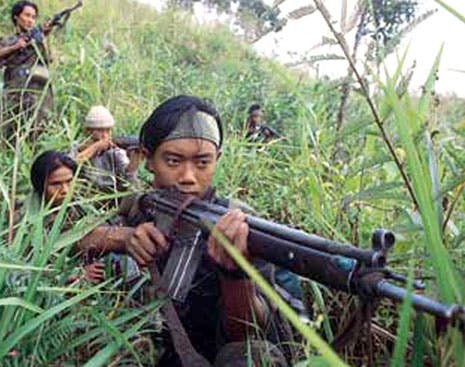
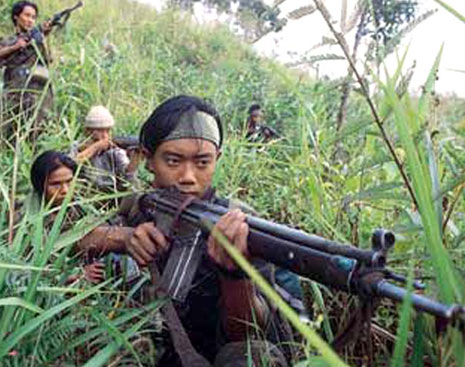
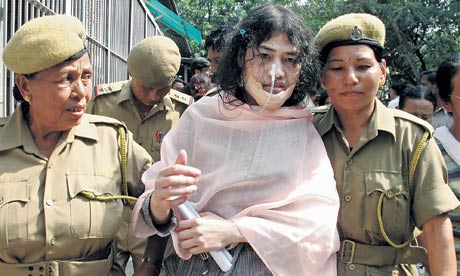
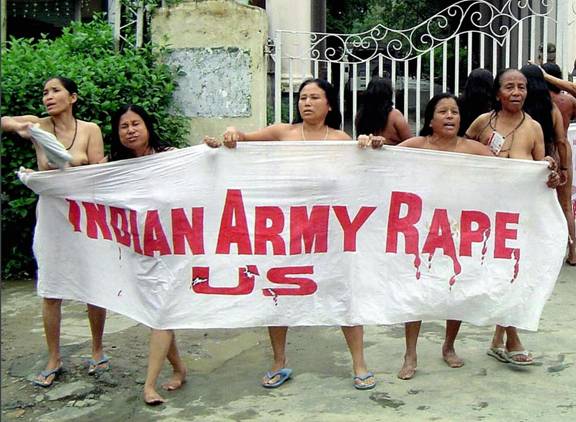
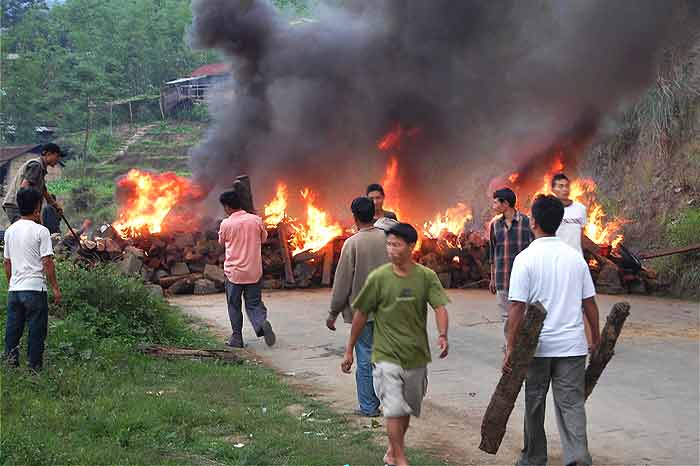
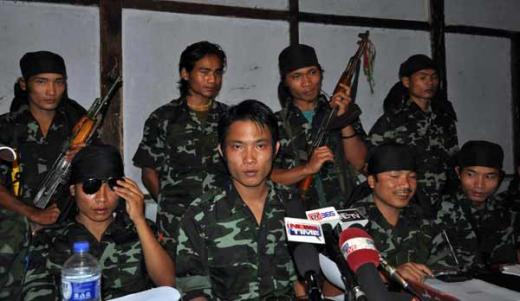
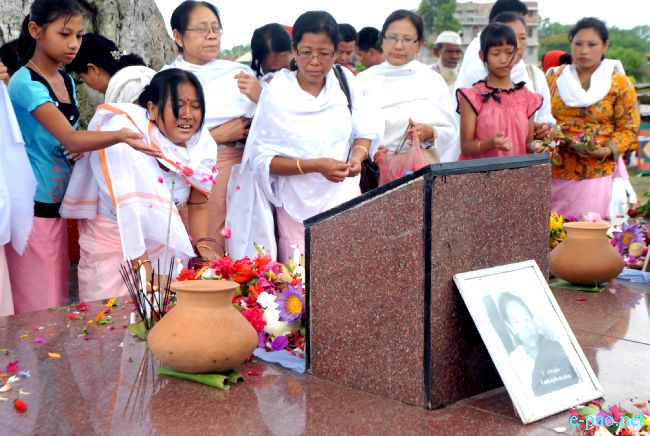
The armed conflict in Manipur is a saga of only losses, losses and more losses with absolutely no gain for either side. In a small population of mere 27 Lakh occupying one of the smallest areas the state of Manipur hosts the biggest number of militant groups numbering 34 that function out of its soil. Creating mayhem, terror and bloodshed of a magnitude the media cannot fathom but for people like you and me who do we fear more- the army soldier whose gun has the sanction of the Armed Forces Special Power (AFSPA) Act to kill or the militant who has been trained on Chinese soil and who looks like you and me? Will his bullet be more merciful? That is the turmoil of living in this distraught troubled land called Manipur.
My homeland was always not known for terror and bloodshed. It was known for its 2000 years of recorded history. It was known for the land where Polo originated, for dance and drama, for music, folklore, martial arts, sports and for its brave men and women who fought the British. Today the terror on its streets has silenced the real voice of my land. And across the hills, the mountains and the rivers all you get to hear from that place far away in the north- east is the trouble it is in. And nothing else.
I speak not as a journalist. I speak as a person who was amidst this violence for years, and one day walked out of it to find my way among you. And from this afar my understanding is clearer. We need help.
The size and impact of the militancy:
Manipur’s militancy is hardest to solve and bring to an end because it is linked with our history, our origin and our identity. Manipur was never a part of India, it was an independent kingdom like Nepal ruled by its King. It had a written history of 2000 years. It was forcibly conquered by the British in 1851 and then later annexed to India. The process was painful for the King, for his subjects, the people and for our own identity. We lost to the aggression of the British but Manipur sought to fight to regain its lost independence and organized militancy took birth in the early 1980s. The leaders of the major militant groups of Manipur think of trying to get back the same kingdom that we were and militancy for them is not just about resisting being part of India. Today there are 34 militant groups in Manipur, to name a few are National Socialist Council of Nagaland(NSCN), United National Liberation Front (UNLF), People's Liberation Army (PLA), Kuki National Organisation (KNO), United People's Front (UPF), KYKL, Kuki Revolutionary Army (KRA), Kuki Liberation Army (KLA), KNA and so on. Young men from both rich and poor families have one day just left their homes, their families and their girl friends and never looked back to what they lost. They took up guns and resolved in their young minds to regain what Manipur had lost- our independence. These men and few women are seen as militants, some call them insurgents and the central government recognizes them as ‘terrorists’ but for the people of Manipur who share their cause call them ‘freedom fighters’ and on their deaths ‘martyrs’.
There is no right or wrong here, no winner or loser. There is just violence and doom.
Inspite of allegations that most of these militant groups resort to extortion from government and the ordinary citizen, the movement began with an idealistic cause. Leaving the comforts of home, being lodged in the deep forests of the hills beyond the reach of law, living among mosquitoes and contracting diseases, with very little access to health care and sanitation, not being able to go meet their families who are being monitored by army intelligence, irregular supply of food and drinking water, it’s difficult for these men and few women to live a life on the ‘run’. The chase from the army is constant and the aggression heavy. The casualty rate is very high and in the presence of the draconian law, the Armed Forces Special Power Act (AFSPA), they know that it is better to die in an encounter than be caught alive by the army. This act empowers the army to indefinitely detain any citizen on suspicion of being a rebel. The act has been blamed by opposition and human rights groups for permitting torture, forced disappearances, and extrajudicial executions. The militants besides wanting an independent Manipur not associated with India, have also sought over the years to revive our culture- sports, indigenous religion, Manipuri Film Industry, clothes and handloom and so on. To the onlooker the banning of Hindi movies to be shown in theatres might have looked an extreme step, one that falls out of preference in a democratic set up but it has successfully been able to nurture the Manipuri Film Industry and fostered local talent. Cultural revivalism and preservation has been the mandate of militant groups in Manipur.
A senior army officer stationed in Manipur says the number of the cadres in all these groups must be about 5500 even after most of them have been killed in operations. There is no data available as to how many have been killed in the past few years. If we are to take the over ground in the picture then the number could be 8000. The army says finishing militancy militarily is very easy as the Indian Army has done it in the past in wiping out LTTE in Sri Lanka and in Punjab by Operation Blue Star. But the reason it has not been able to clear insurgency in Manipur is political. The army has no power and feels they have been just stationed there to control law and order situation from escalation.
The Indian army, the paramilitary and the State Police together form a cohesive force which fights militancy in Manipur. If you walk the streets of Imphal the capital of Manipur you will see more army personnel than the civilians! Each combing operation is held with a team from each force. The casualty on the side of the forces and the feeling of alienation among them for they feel misunderstood, feared and unaccepted by the locals are challenges the Indian Army is living with each day. The Indian Army claims that the movement is near over. We have no statement from the other side.
The Armed Forces Special Power Act (AFSPA) as pointed out by a senior police officer, says is a good act like any other and is required for the army and the paramilitary to conduct their duty in extreme hostile environment as the one prevailing in militancy torn Manipur. “But it is also a fact that many instances of extreme violation of human rights of innocent and crime against women have occurred in Manipur due to the protection it renders to the army and the paramilitary”. He continues to throw light on the way out of this by adding, “The Army and the paramilitary after coming under direct line of fire of human rights activists have also learnt a lesson or two. A lot of awakening of sorts is happening within their system, which was unheard of some years ago.” He informs that there are sensitization drives within the army and paramilitary engaging the troops and officers of the human rights of the locals and to adhere to international laws of human rights of individuals while on an operation.
The life of a common man:
The life for a common man is abnormal. The terror is profound. Every man lives with an uncertainty of being killed by the army on suspicion of being a militant, by the militant on suspicion of being an army informer. The women live in fear for the lives of their men, sons and fathers. They fear for their own modesty as militancy and conflict has also brought to fore many many cases of women being raped and molested by the Army and the paramilitary. They know in this sphere there is very little that law could do. In such a scenario its one man against the other. In one case the husband was held at gun point by soldiers from the paramilitary in a remote village and wife was gang raped. In another instance a woman suspected to be a militant was picked by the army for interrogation only to be found dead days later. On post mortem, it was found she had been gang raped while in the custody of the army. There was a state wide revolt against this particular incident (Manorama). Women and children are the biggest victims of armed conflict.There is also the constant fear of death in cross firing and bomb blasts that are master minded by militants in very crowded places like bazaar, cinema halls etc.
Paralyzed development, dead dreams:
Armed conflict has marred the process of development. Every development plan of the government is disturbed and hindered by the militants- construction of bridges, stadiums, national games village and so on all had been delayed due to demand of a large % made by militants, non compliance leading to kidnapping of government officials and execution on non negotiation. Every sector in the state pays a percentage or tax to the demands of militant groups. I hear that while a budget is chalked out their share is also taken into account. There have been no MNCs, corporate houses or private entrepreneurs to come invest here or start a venture on our soil due to the legitimate fear of militancy. In the absence of any industry, there are no job opportunities but for the government jobs. A nexus between the politicians, bureaucrats and militants- one supplies money and the other gun power- has fostered corruption in every fabric of our existence. Corruption has also ensured that the young do no get employment. Mass unemployment has led to unequally distribution of wealth, poverty is wide and visible. The economy has broken down to such a degree that I heard the State Government of Manipur has not been able to give salaries to its employees for 6 months now. We have 5 hours of power a day in good months like Aug Sep Oct, in worst times like Apr May June we are lucky if we get 3 hours of power a day. LPG is priced at 1200 bucks and a litre of petrol in black is a 120 Rs. Life is difficult; development paralyzed and dreams long dead.
Downslide of the movement:
A senior IPS officer from the State told me the movement is near over. The leaders have been mostly killed, convicted, jailed or pacified. Another officer from the Indian Army who was posted to Manipur few years ago says , “Things are lot better than what it used to be 15 yrs back when I was there .I remember moving around with my weapon cocked all the time. The revolution has lost its teeth with public support waning. They are no more the same. They are mere extortionists.”
I asked a serving Commanding Officer of an Infantry Battalion in the worst militancy affected district of Thoubal what the status of the movement was. This is what he has to say- “Army in Manipur has achieved it’s aim. It cannot do anything more. It has brought the environment to a level where administration is possible. Now it is for the state to show good governance and break the strangle hold of human rights activists and militant coterie.”
No matter what the army and the police claim, for the common man life hasn’t changed a bit. Perhaps it’s the last flame of the shooting star that we see but militancy is very much visible, the movements clear and the presence felt.
A Human Rights activist Babloo Loythongbum Director of Human Rights Alert in Manipur says that the present activism involves getting the rights of the widows of these men who have either died at the hands of the army & paramilitary or at the hands of militants. The number of these widows of conflict who are registered formally stands at 1000. He says, “In our report last year 1528 men were killed by the army, paramilitary and police. We have no count of the men and women killed by militants’. The major issue of these widows is being banned as a terrorist’s wife and kept excluded from all government support schemes that widows are entitled to. Other issue is to seek judicial probe into the claim of a fake encounter by the widow. What his NGO does is help families to put up a case in the court or in front of NCHR in a more intelligible manner. “It is up to the judiciary to decide which is a false claim and which is genuine. We do not judge the innocence of the man who died, or the claim made by the widow that husband was killed with no reason. We just facilitate the family to get justice.”
Irom Sharmila known as the "Iron Lady of Manipur" is a civil rights activist of Manipur. Since 2 November 2000, she has been on hunger strike to demand that the Indian government repeal the Armed Forces (Special Powers) Act, 1958 (AFSPA), which she blames for violence in Manipur and other parts of northeast India. Having refused food and water for more than 500 weeks, she has been called "the world's longest hunger striker".
Academicians and intellectuals of Manipur are convinced that militancy in Manipur may be the mandate of the center through a hidden agenda or by our neighbor across the Great wall of China for an agenda unknown to us. The motive is debatable. There have been instances of extreme violation of the human rights at the hand of the Army, paramilitary and police but at the same time, if AFSPA is revoked from Manipur and militancy is given a free reign, our days of woe will not end either way. Army is an instrument and not the perpetrator as the public and activists would conveniently like to label.
The people of Manipur want to end this cycle of violence by devoting their attention to economic pursuits and prosperity. Many courageous young men and women have chosen to be no part of this war back home, to wander out to different cities of India in search for work and another option. The solution seemed to be just this. But discrimination and a feeling of ‘not belonging’ are emotions hard to turn into a positive feeling over night. The recent exodus of the North East people from Bangalore and other cities on eruption of ethnic violence clearly shows that the answers and solution to armed conflict back home are not easy to arrive at, not easy to escape and not easy to live with.
Like I said earlier, there is no right or wrong here, no winner or loser. There is just violence and doom. To escape the violence faced by us for decades on our home turf , relocation and finding our livelihood elsewhere could be a first step but there will be many more giant steps to be taken by us before we can say we are 'healed'. The number of militants claimed by the official figure could be dwindling but the memories and the trauma are fresh.
Urmila Chanam
Columnist the Sangai Express (Manipur)&
North East SUN magazine India




